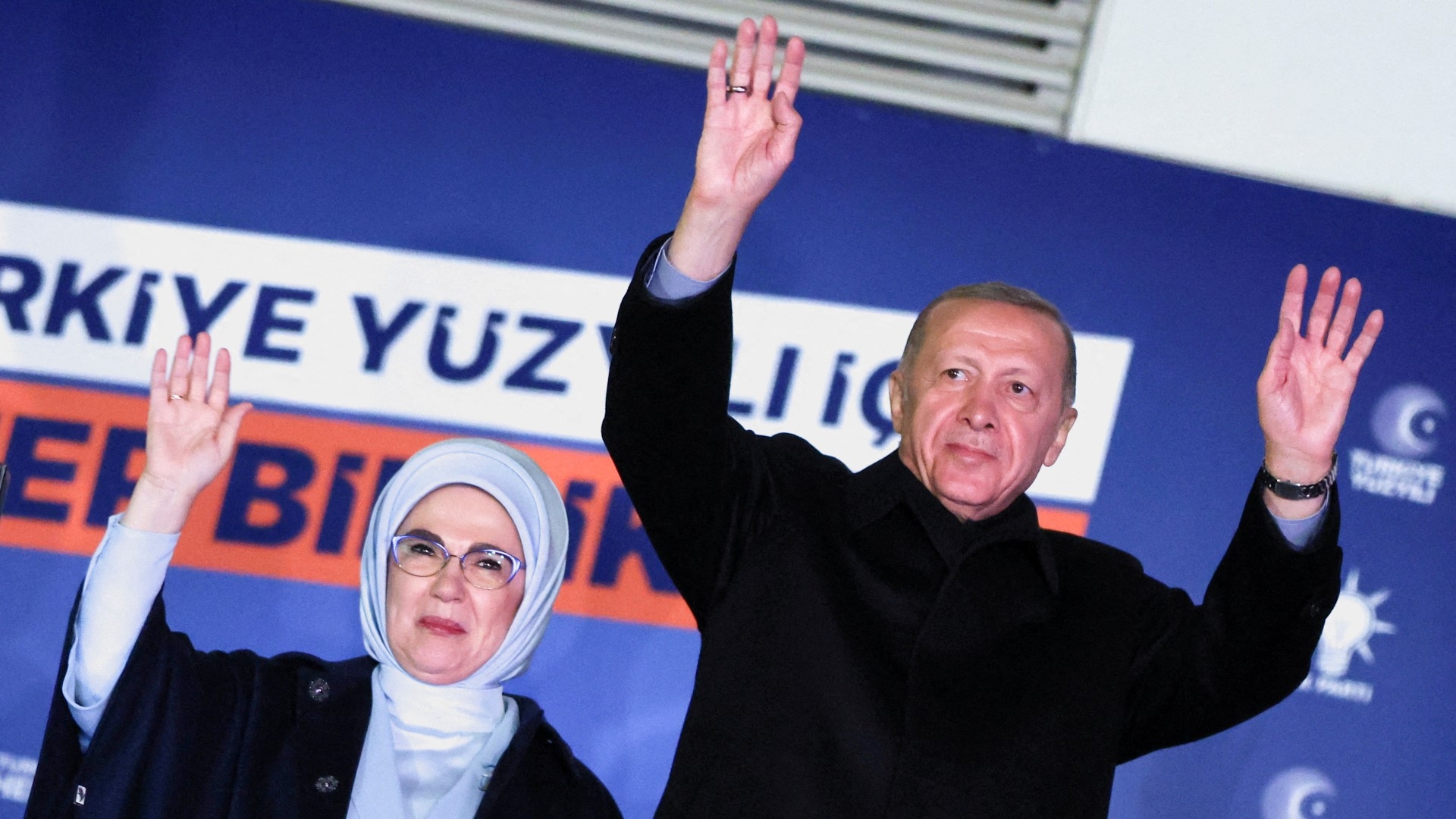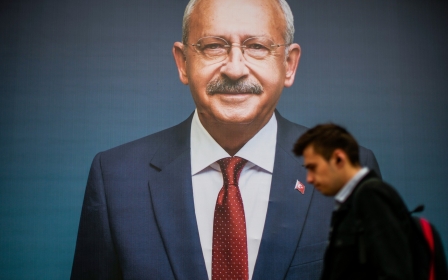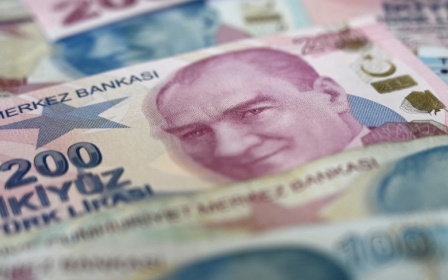Turkey set for runoff election as Erdogan and Kilicdaroglu fall short

Ankara and Istanbul - Turkey is set for a runoff presidential election on 28 May after neither President Recep Tayyip Erdogan nor his challenger Kemal Kilicdaroglu won more than half of votes on Sunday.
Voters also cast their ballots for parliament, with Erdogan’s ruling Justice and Development Party (AKP) and allied Nationalist Movement Party (MHP) on course to retain their majority.
Erdogan was facing the most difficult electoral challenge in years, with Kilicdaroglu, who led an alliance of opposition parties, neck and neck with the president in the polls ahead of the vote.
Anadolu Agency, which tracked the results, put Erdogan at 49.39 percent and Kilicdaroglu at 44.27 percent with 97 percent of the ballots boxes opened.
"Even though the final results are not in, we are far ahead. We still don’t know the final official results, we are still waiting for the will of the nation to become apparent," Erdogan told supporters from the balcony of the AKP headquarters in Ankara.
New MEE newsletter: Jerusalem Dispatch
Sign up to get the latest insights and analysis on Israel-Palestine, alongside Turkey Unpacked and other MEE newsletters
He said that he believed he would surpass 50 percent with the votes still left to be counted, but if it went to a second round he would "respect that too".
Meanwhile, during a short speech alongside his opposition coalition partners, Kilicdaroglu said: "Erdogan didn't get the vote of confidence from the people. The desire to change in the society is more than 50 percent."
Earlier on Sunday, Kilicdaroglu said results were being impeded by objections and called on election authorities to “not block the people’s will”. The election board denied there were any issues and said the vote went smoothly.
In the end, it was a third candidate, Sinan Ogan of the ultra-nationalist Ancestor Alliance, who emerged a clear victor, surprising by taking around five percent of the vote and stopping his rivals from winning outright.
It remains to be seen if he will endorse Erdogan or Kilicdaroglu in the runoff.
"We see a high probability that the elections will go to the second round. Turkish nationalists and Kemalists are the key to this election," he said.
Key battlegrounds
Around 60 million Turkish citizens are believed to have voted in an election overshadowed by twin earthquakes in February that killed more than 50,000 people and a biting cost of living crisis.
Turnouts are traditionally high in Turkish elections, and this year’s is believed to have been particularly large.
Big cities like Istanbul, Ankara, Izmir and Antalya were key battlegrounds. In Istanbul, long queues of voters snaked out of polling stations from the early hours.
'I didn't want Erdogan anymore. He has been in power for 20 years. This time I gave my vote to Kilicdaroglu for a change'
- Mustafa Arslan, Diyarbakir voter
The crowds in the Fatih neighbourhood, a stronghold of the ruling Justice and Development Party (AKP), were distinctly supportive of the president.
"We can't give up Erdogan," voter Busra Yavuz told Middle East Eye.
In Maltepe, an area with a large support for Kilicdaroglu’s Republican People’s Party (CHP), the atmosphere was starkly different.
"Today, we are marking the start of the spring," said Ayhan Isil, a retired teacher, referring to the CHP's main campaign slogan: "Springs will flourish".
In the Kurdish-majority south, voters told MEE they had turned against Erdogan.
"I decided at the last moment," said Mustafa Arslan in Diyarbakir. "The reason was that I didn't want Erdogan anymore. He has been in power for 20 years. This time I gave my vote to Kilicdaroglu for a change."
Exceeding expectations
As the votes were counted on Sunday night, the opposition began claiming the official Anadolu Agency was misrepresenting results and the AKP was placing challenges wherever they were losing.
Anadolu’s early results showed Erdogan with a wide lead, which narrowed as the night went on. Istanbul Mayor Ekrem Imamoglu said the news agency was in “vegetative state” and releasing its data in a deliberate way that puts Erdogan in the lead.
The vice presidential candidate has history with Anadolu, with the agency controversially failing to update the vote count beyond the 98.7 percent mark for more than 12 hours in the 2019 mayoral election when it appeared the CHP candidate was on course to win.
Anadolu and the AKP denied the allegations, with the news agency saying it would take legal action against the parties “inaccurately” blaming it for the election results.
Both Erdogan and Kilicdaroglu urged their election monitors to guard ballot boxes until results were finalised.
In the parliamentary race, the AKP and MHP looked set to retain their majority in parliament. They were projected to take 323 seats out of 600 with 89 percent of the vote counted.
The MHP, in particular, outperformed expectations to take over 10 percent of the vote.
Based on Anadolu Agency data, a preliminary analysis of vote shares in the presidential elections in AKP strongholds suggested that ultranationalist candidate Ogan managed to snatch votes from both Erdogan and Kilicdaroglu's bases in places known for their conservative and historically nationalist leanings.
With Ogan’s nationalist vote now set to be courted over the next fortnight, there are fears Turkey’s anti-Syrian rhetoric could ramp up.
The presence of 3.7 million Syrian refugees has become a sore point among voters, spurring Kilicdaroglu to promise rapid repatriations and Erdogan to begin normalising relations with longtime foe Syrian President Bashar al-Assad.
Around 220,000 Syrians who have obtained Turkish citizenship voted on Sunday.
“I think Erdogan is the right person for the Syrian refugees to live in peace in Turkey,” said Yahya, a 25-year-old student.
The opposition “treat us as if we are from a lower class, as if we are ignorant, and we cannot be like them”, he added. “They want us to leave this country and send us back to Syria. That would put people like me in danger and set our lives back years.”
This article is available in French on Middle East Eye French edition.
Middle East Eye delivers independent and unrivalled coverage and analysis of the Middle East, North Africa and beyond. To learn more about republishing this content and the associated fees, please fill out this form. More about MEE can be found here.




